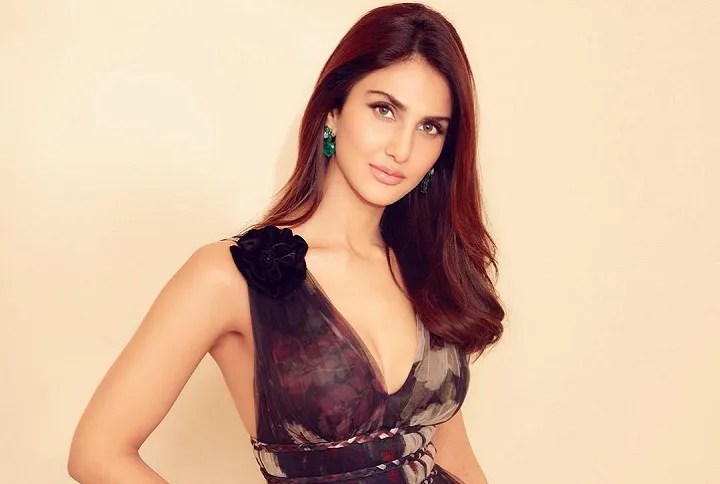This gone weekend, I went to see Ayushmann Khurrana and Vaani Kapoor’s Chandigarh Kare Aashiqui with a little bit of fear in my mind of whether the subject that they had undertaken in the film would come out in a positive way, but I was bowled over by the film. The respect with which Abhishek Kapoor has treated the representation of transgender community is praiseworthy, but what also deserves a lot of praise is Vaani’s portrayal of a trans-woman.
The actress showed the restraint, fear and the confidence that any person belonging to the spectrum might feel, with utmost sensitivity, and Maanvi Brar will surely go down as a memorable character in Indian cinema. Now, Vaani hopes that the impact of Chandigarh Kare Aashiqui would enable future representation of transgender community in films.
The actress says:
“For me, when Chandigarh Kare Aashiqui came to me, I was blown away by the script because it sensitively spoke about the need for inclusivity, but also told the story in the most engaging way possible. Hats off to Abhishek Kapoor for making a film that is accessible for people and can appeal to every human being, in every part of the country. We have to first pull in people to watch such films so that they can ponder over what we are trying to say and that, I believe, can hopefully aid in changing society at large.”
Check out the film’s trailer:
The trans community has rarely been represented in the Hindi commercial cinema, so Chandigarh Kare Aashiqui seems like an important and long-overdue step in that direction. The movie does not instil transphobia in any way, neither does it preach for acceptance. The natural flow of the story engages you enough to empathise and connect with Maanvi at a human level, forcing you to think, and Vaani hopes that it opens the gate to more representation of the community on screen.
She says:
“I hope the impact of Chandigarh Kare Aashiqui is in enabling future films and producers, so that representation of transgender people playing such roles is achieved. I hope that after this film no cis-het actress ever plays the role of a trans-woman and we can cast people from the community to play such roles. That was the aim of Chandigarh Kare Aashiqui right from the start, because to change the mindset that has been prevalent for so long, you have to engage with people en masse and tell them about the importance of celebrating individuality and the freedom to choose one’s gender.”
What touched me the most in Chandigarh Kare Aashiqui was the fact that each character stayed true to the background that they were set in. No one went over the top to make anything funny, offensive or preachy, and that’s what is needed when it comes to representing the community on the spectrum. Instead of being a film on trans community that has a love story at its heart, it was a love story with trans representation at its core, and that’s the kind of stories we need. What we need is to make it normal having people from the spectrum in our stories, and not make their gender or sexual orientation the centre of their being, but just a part of who they are. Chandigarh Kare Aashiqui takes an important step in that direction and I feel happy to witness this evolution.

